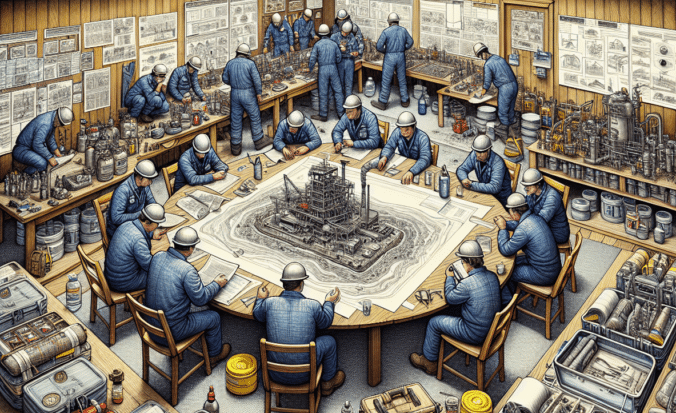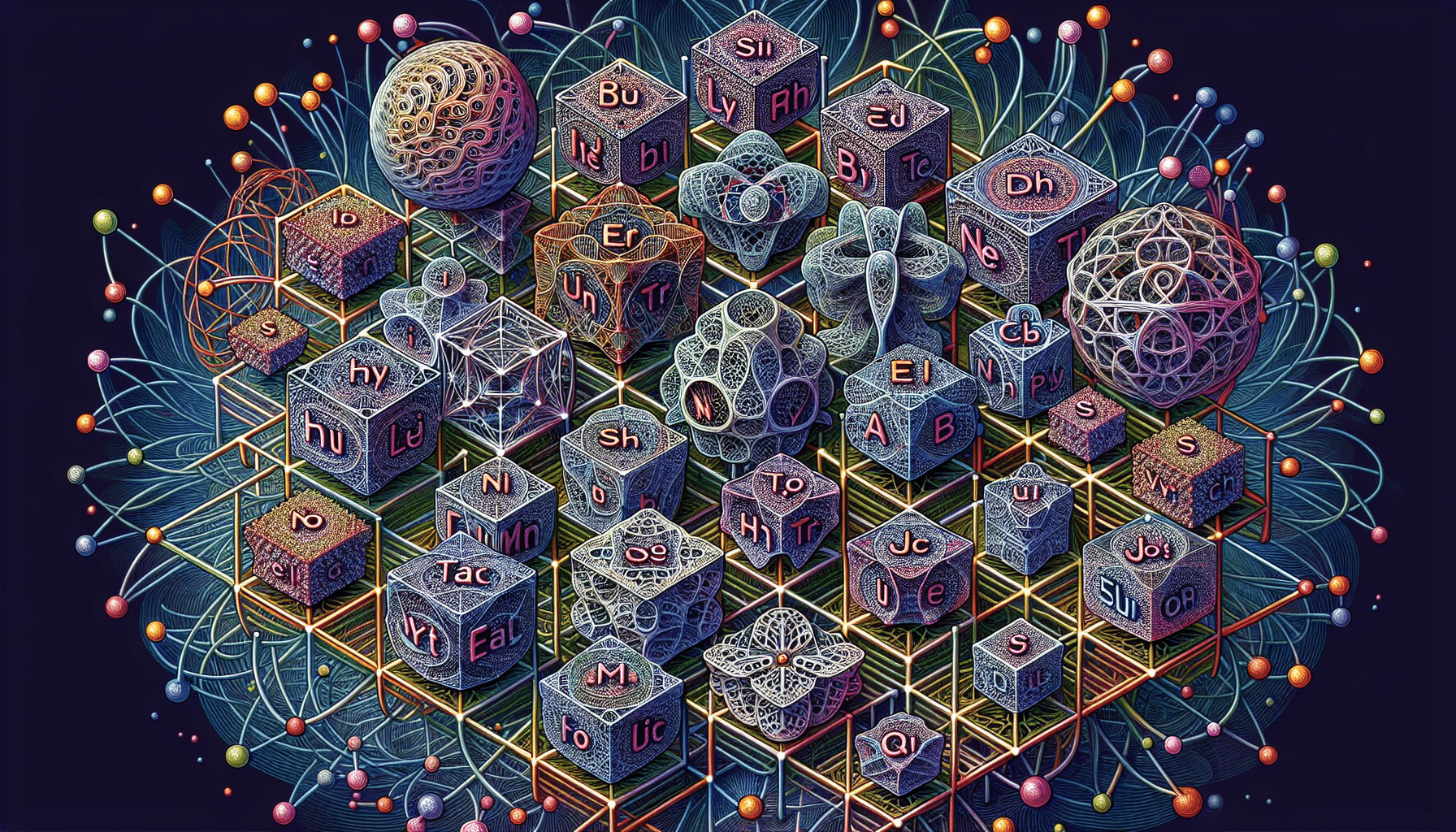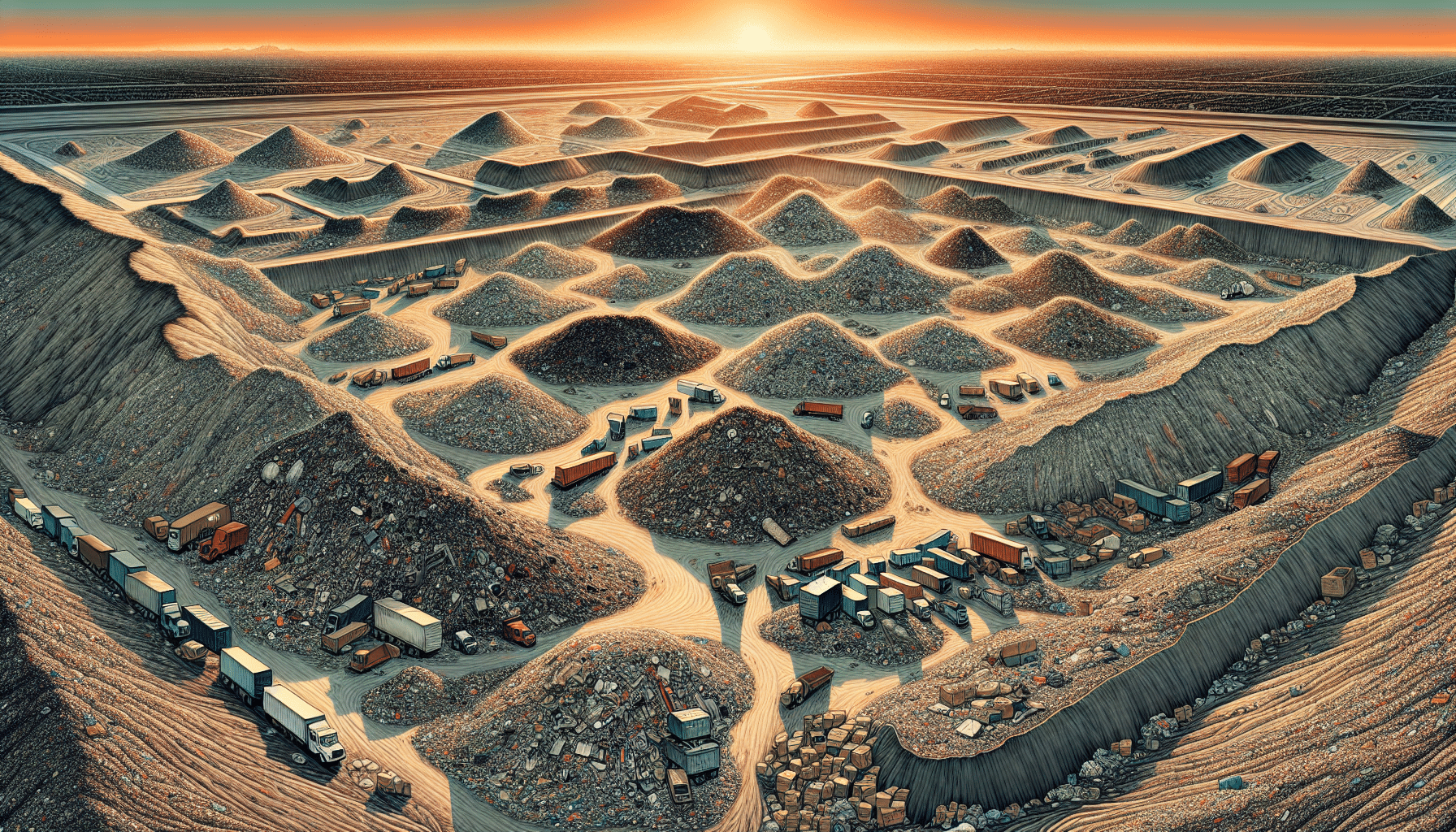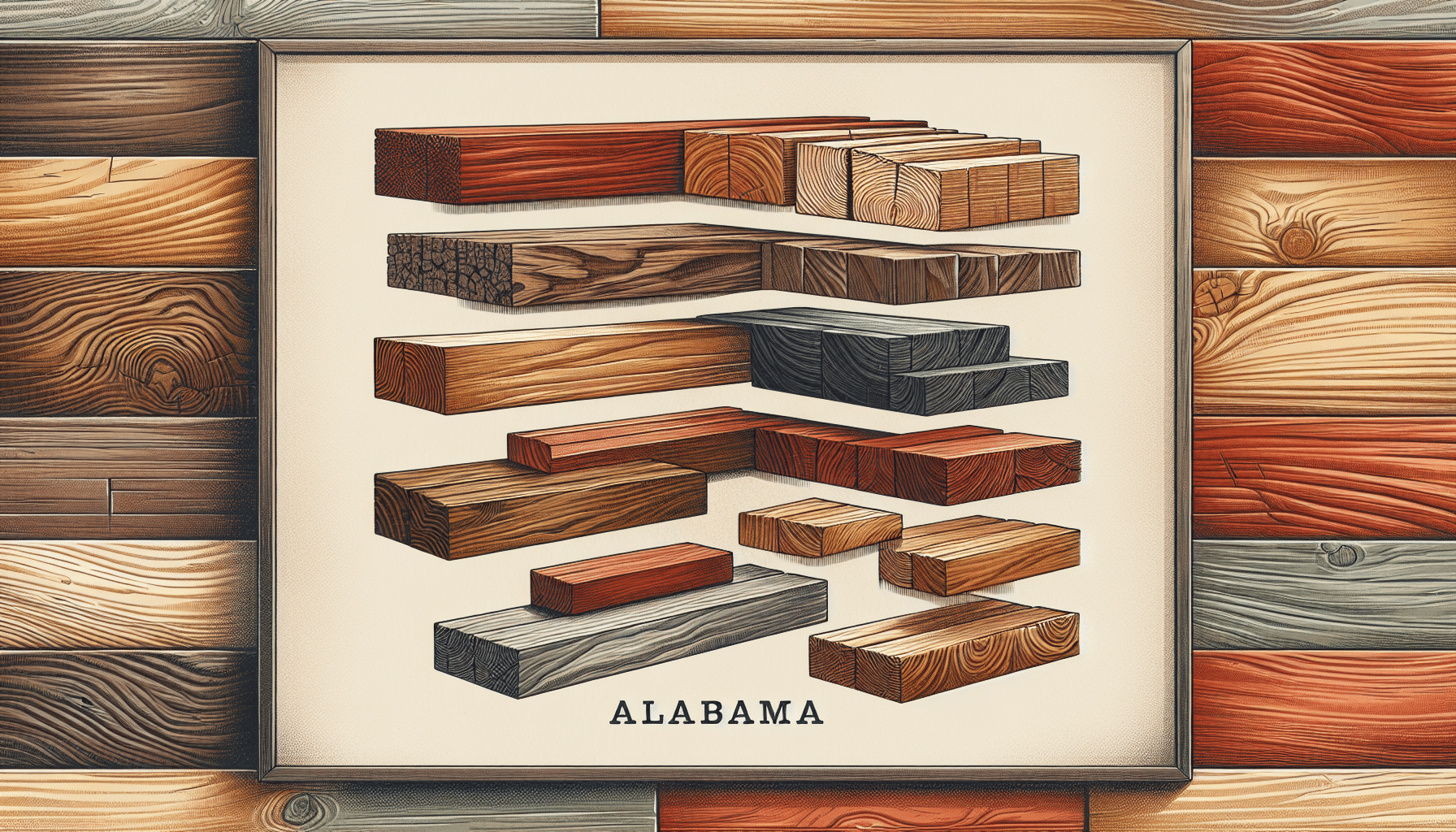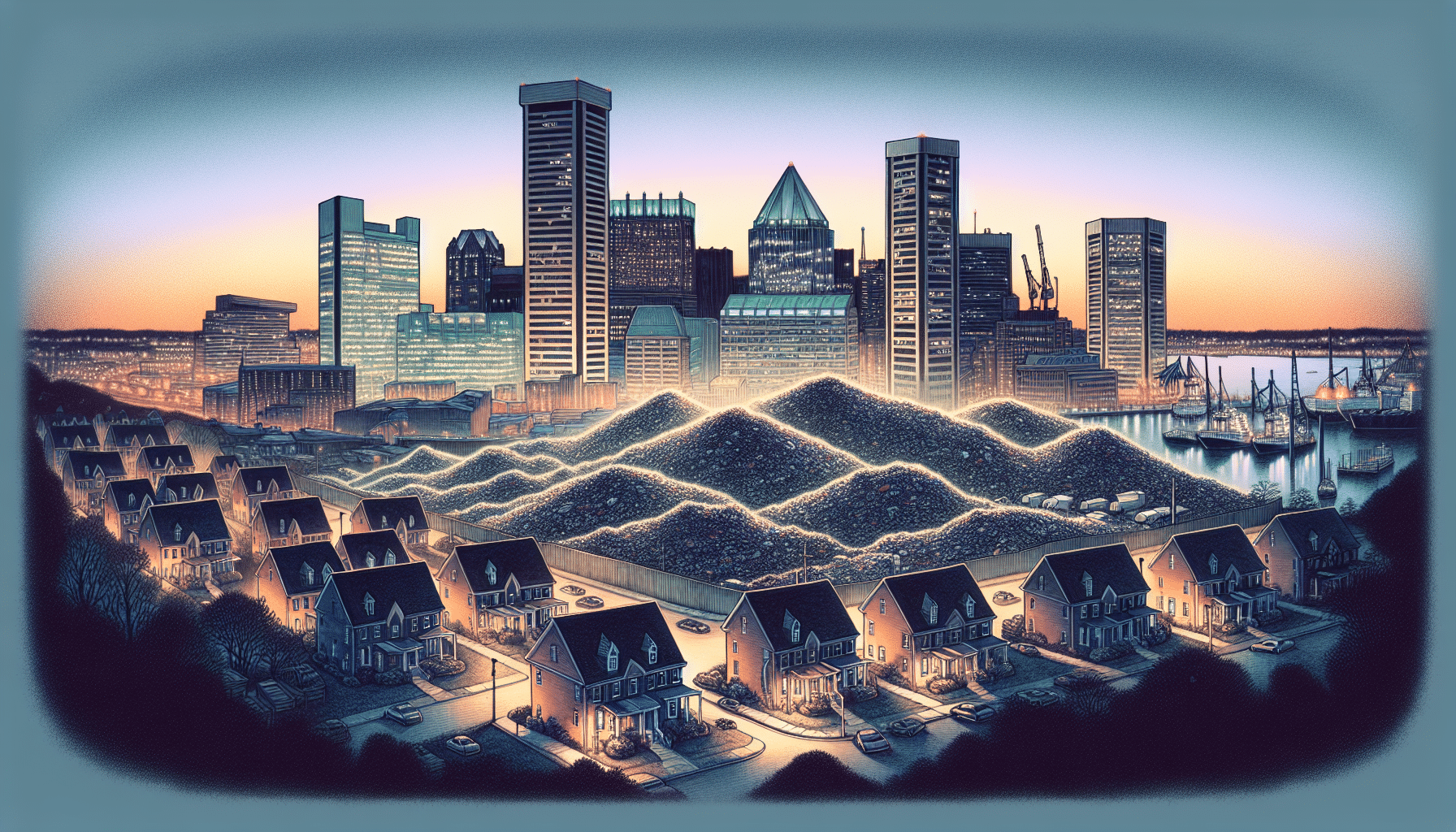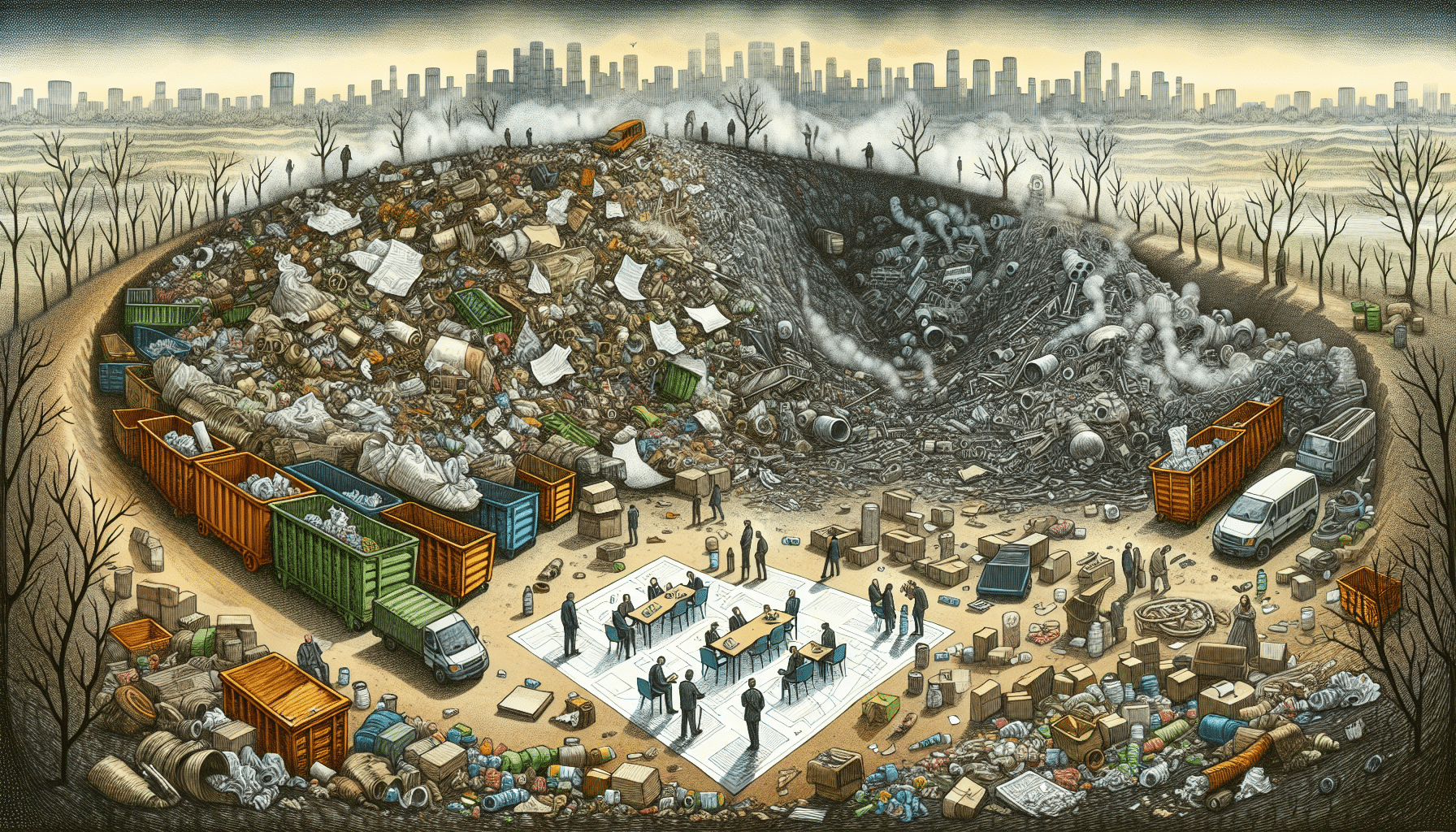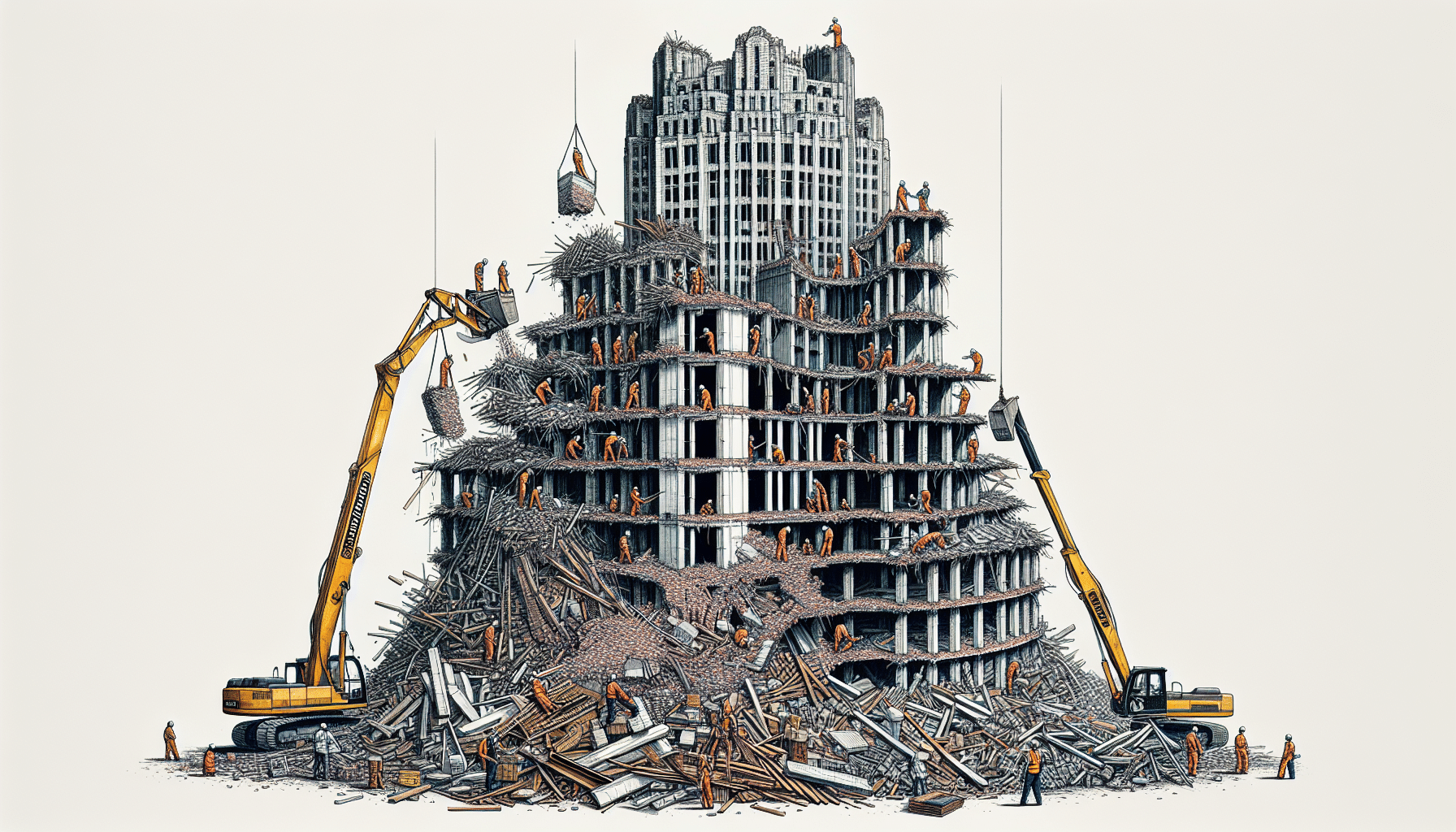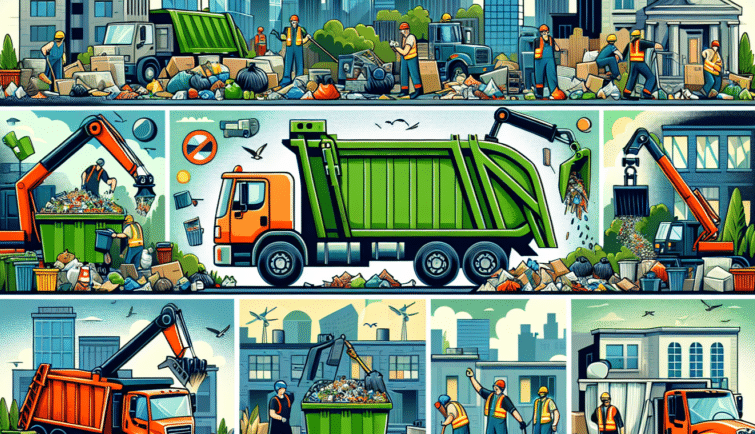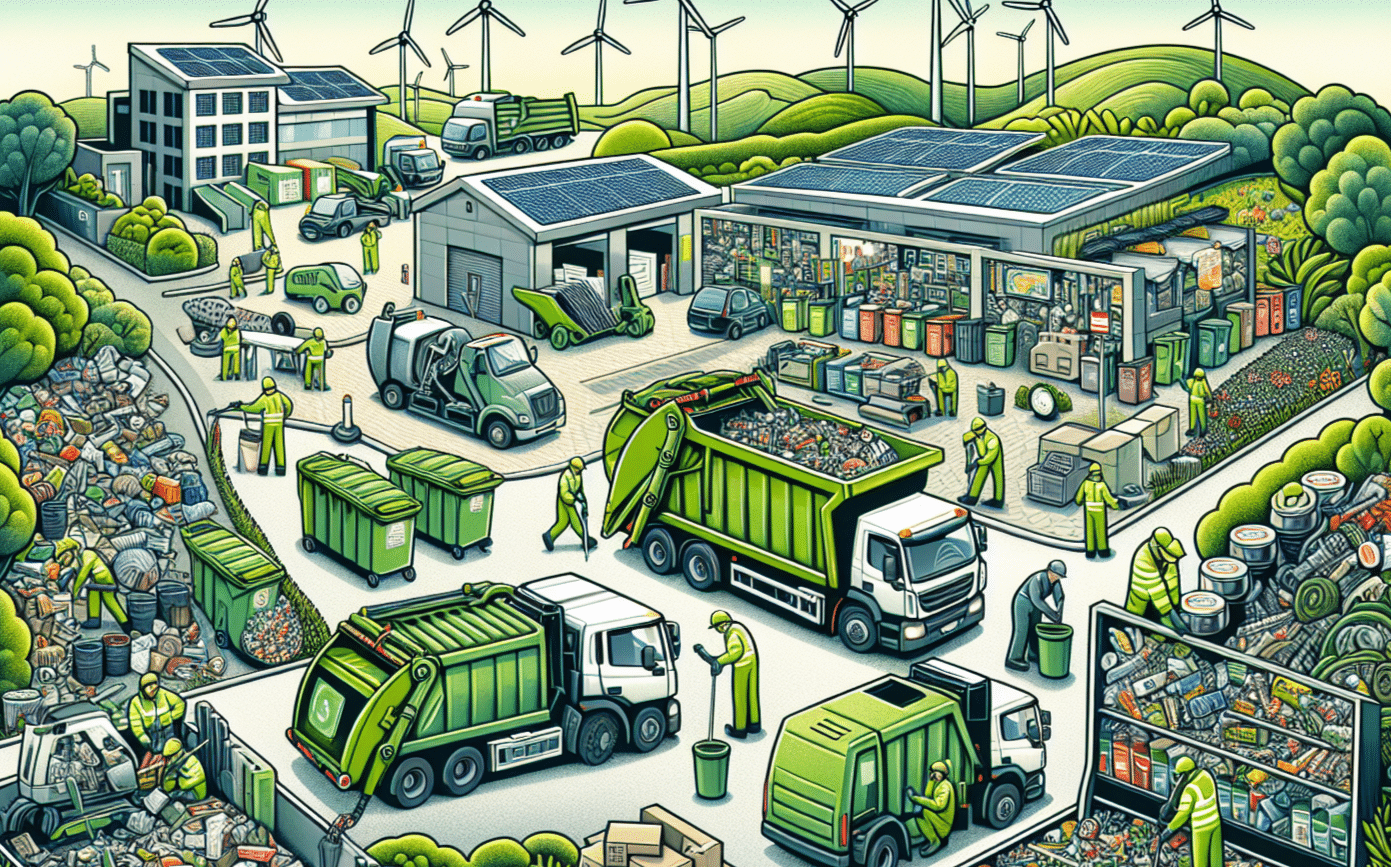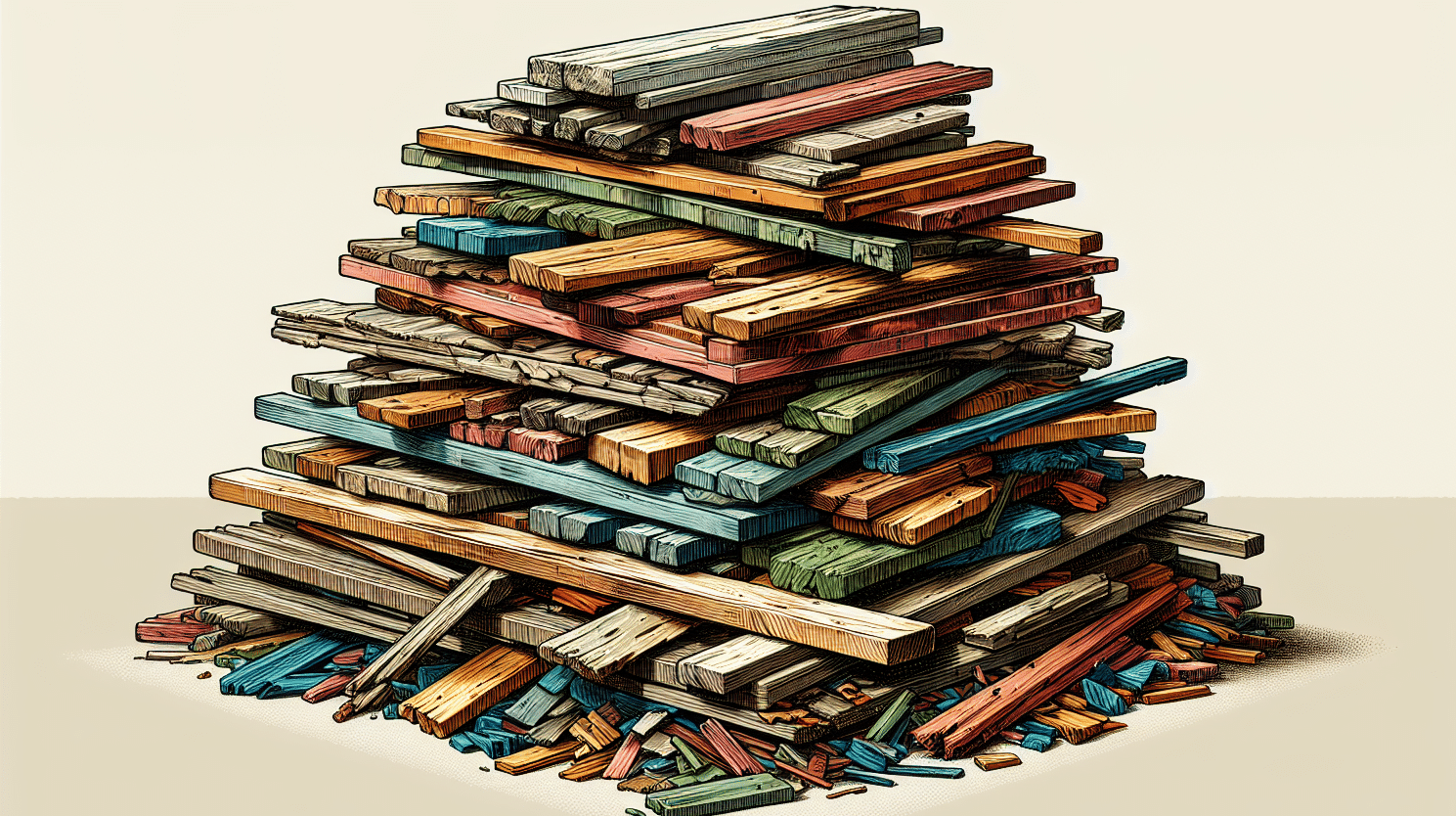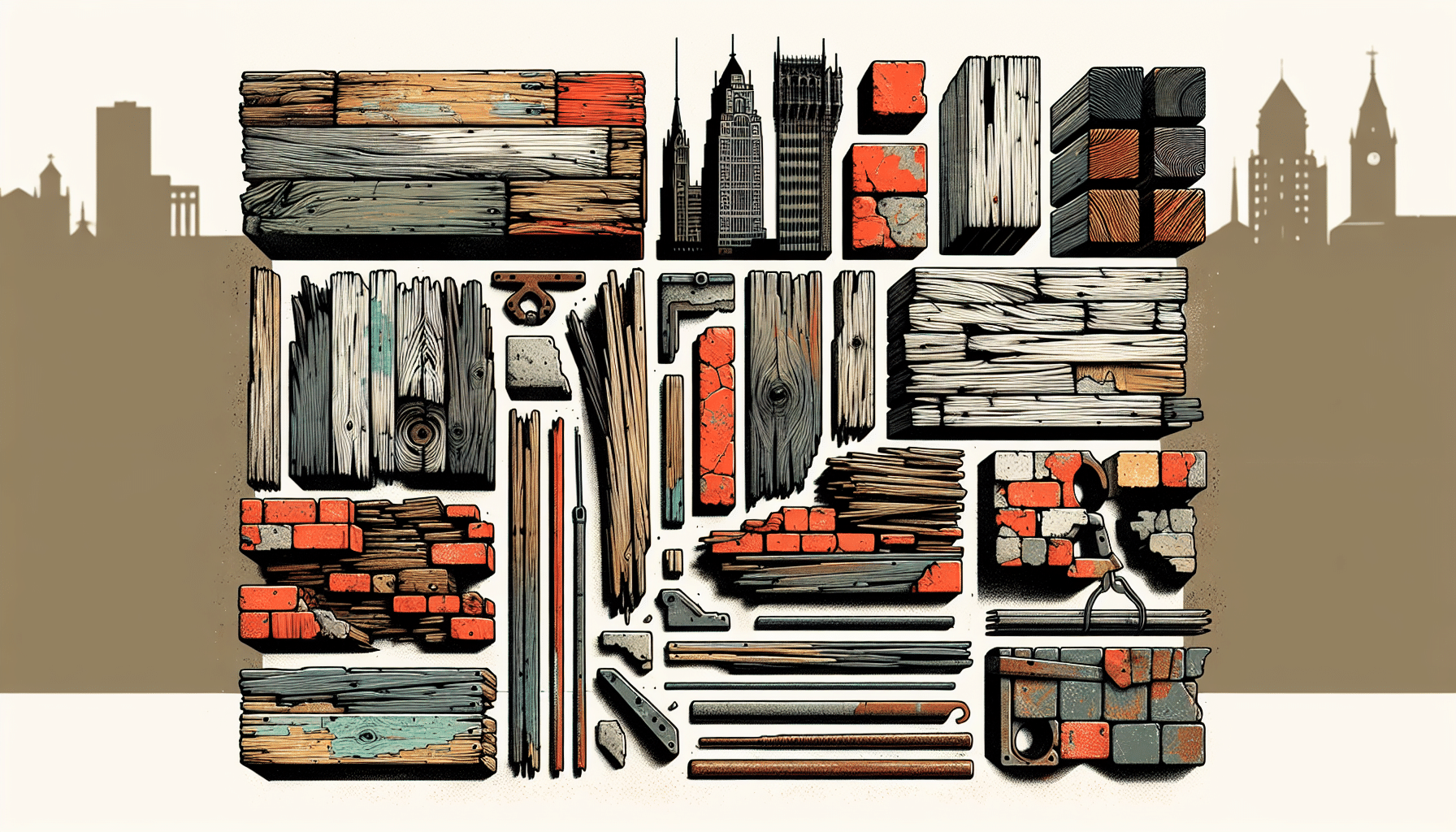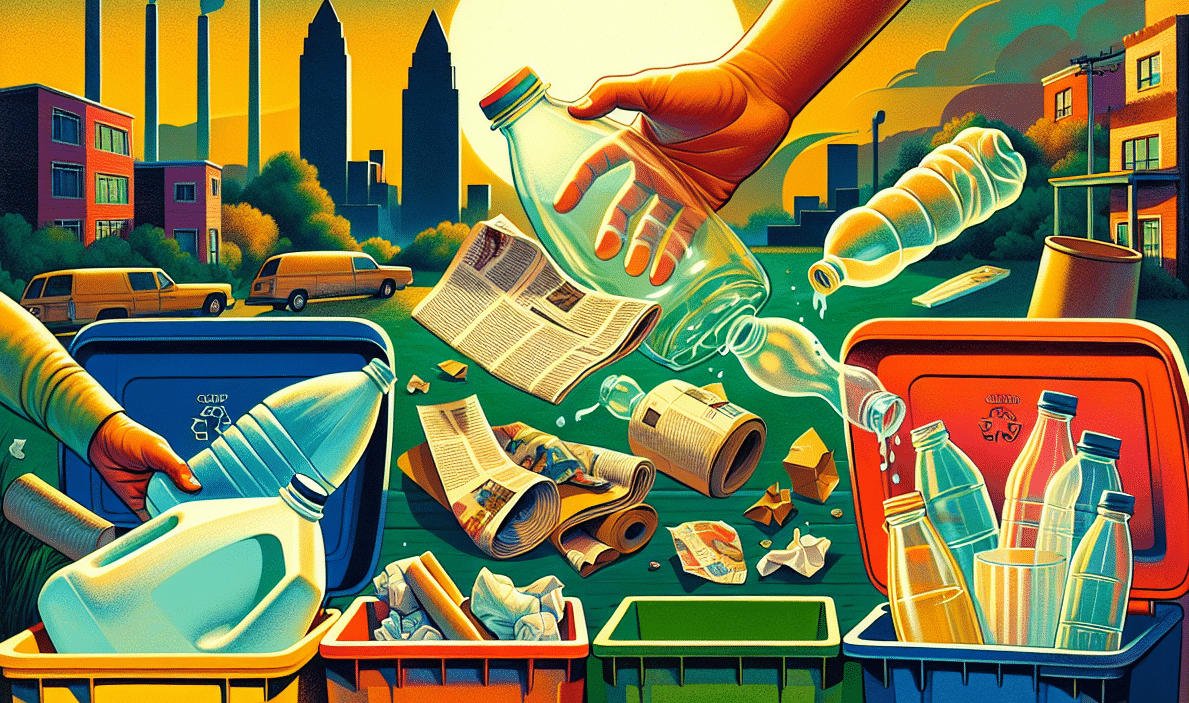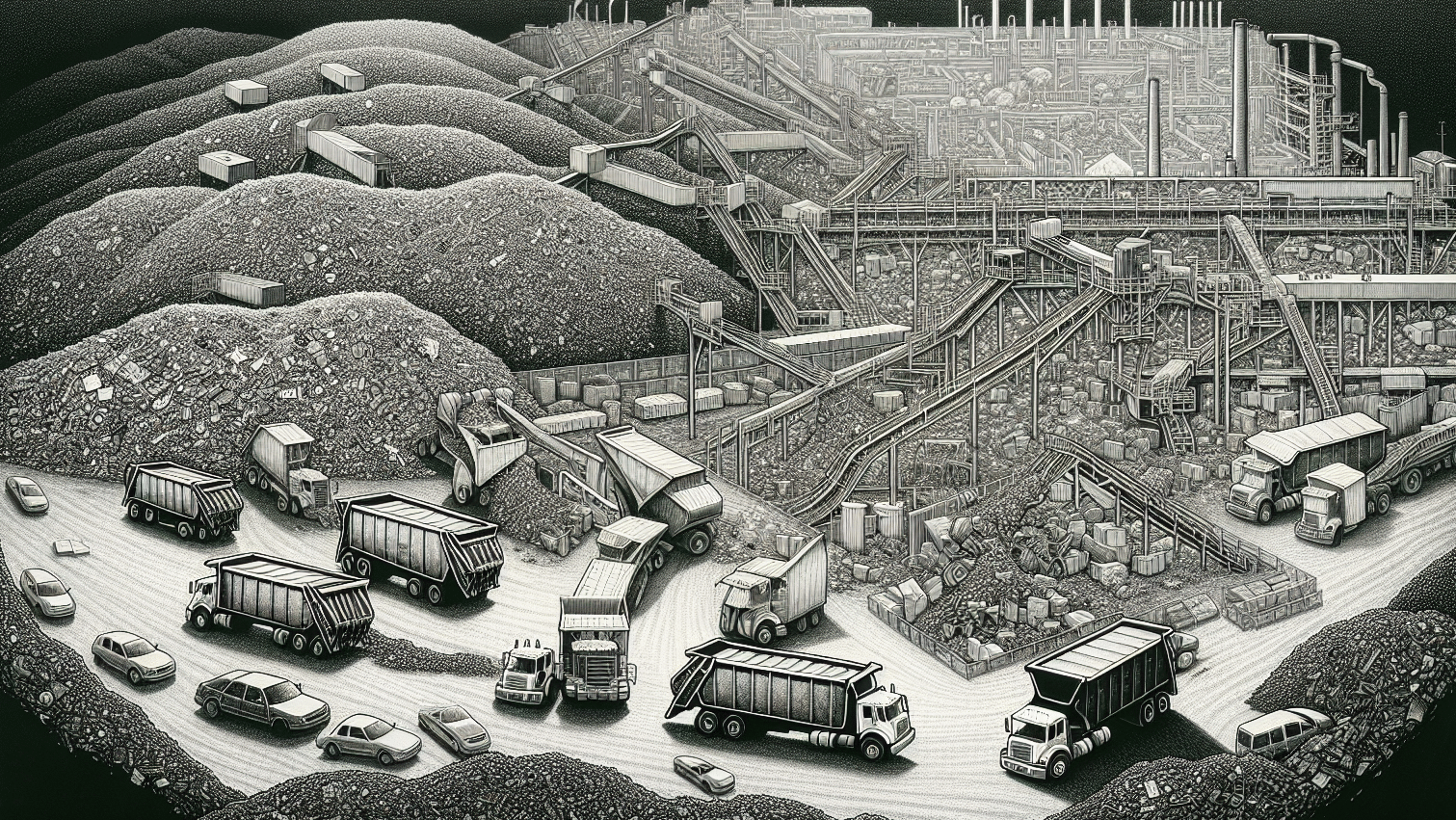If you’re looking for landfills in Richmond, VA, you’ve come to the right place. This article offers a straight-to-the-point rundown on the different landfill sites within the region, their specific operations, and how they fit into Richmond’s waste management and recycling efforts. We’ll also touch on environmental and safety regulations you should know. Start your journey to a cleaner, greener Richmond by exploring landfills’ critical role in the city’s sustainability.
Key Takeaways
- Richmond, Virginia, utilizes different types of landfills (sanitary, CDD, industrial) to manage the city’s waste, ensuring environmental safety and sustainability through engineered systems for stabilization and leachate control.
- The Department of Public Works in Richmond oversees an organized waste disposal process that includes regular waste, recycling, yard waste, and hazardous waste collection services, complemented by a methane gas management system at landfills.
- Recycling centers are crucial in Richmond’s waste reduction efforts, allowing residents and businesses to recycle various materials. The community is encouraged to engage in sustainability initiatives like composting and supporting eco-friendly businesses.
Understanding Richmond’s Landfill Sites
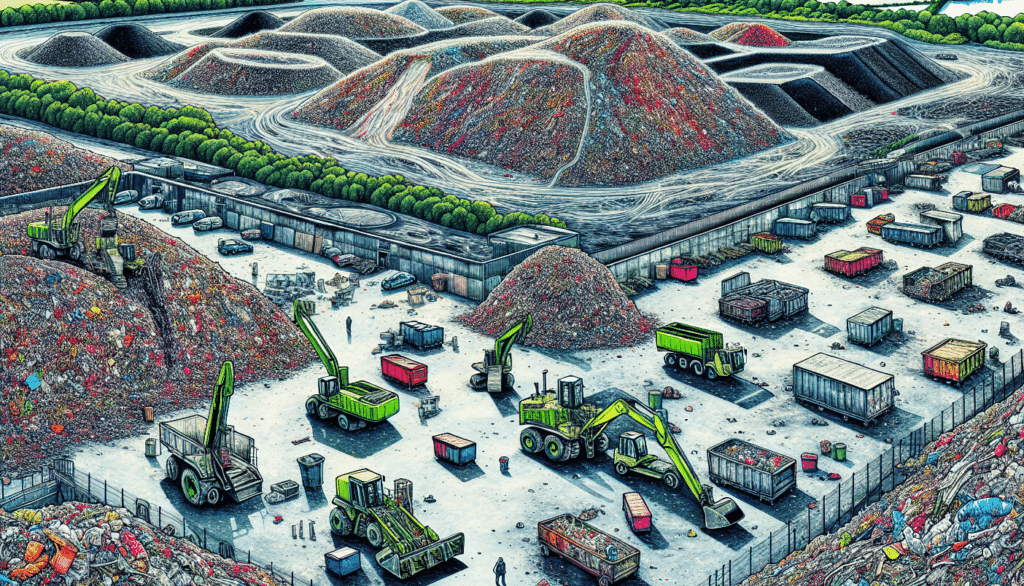
Richmond’s landfill sites are pivotal in handling the city’s waste. These structured locations isolate waste from the environment, safely containing it to prevent potential contamination of water sources. Far from simple waste dumps, landfill sites are meticulously engineered and operated to stabilize waste and control leachate, a potentially hazardous liquid if mismanaged.
Types of Landfills
What are the different types of landfills in Richmond? Landfills in Virginia, including Richmond, are categorized into sanitary, construction/demolition/debris (CDD), and industrial types. Each type serves specific waste disposal needs.
For example, CDD landfills are specifically engineered to manage materials from old structures and leftovers from new construction projects. On the other hand, Municipal Solid Waste (MSW) landfills are designed to handle everyday waste from residential and commercial sources. Richmond also hosts specialized landfills for specific types of waste, including construction landfills, dirt dumps, and concrete dumps.
Locations and Capacity
The Old Dominion Landfill, a significant county landfill site in the area, is at 4120 Charles City Road in Richmond. It operates with strict regulations to ensure environmental safety and has limited capacity, meaning it can only accept a certain amount of waste.
Through meticulous capacity management, landfill operators maintain safe and sustainable operations.
The Waste Disposal Process in Richmond

Richmond’s waste disposal process is well-organized and systematic. It involves the collection of waste, its transportation, and finally, how to dispose of it at local landfill sites.
Once the waste reaches the landfill, it undergoes a process of decomposition over time. The importance of this process lies in its ability to diminish the volume of waste, subsequently creating space for more.
Waste Collection and Transportation
Let’s now delve into the methods of waste collection in Richmond. The Department of Public Works is responsible for this task, serving 65,000 residences and small businesses through an extensive network of 90 routes. Residents have their trash collected once a week from Monday through Thursday, using City-issued ‘supercans’. The collection schedule runs between 6 a.m. to 4:30 p.m., with adjustments made for city holidays.
Richmond offers the following services for waste disposal:
- Regular waste collection
- Recycling collection
- Yard waste collection
- Bulky item collection
- Hazardous waste disposal
In addition, Richmond also offers a ‘Back Door Service’ for those who are elderly or disabled, ensuring they have convenient access to waste disposal services. After the waste is collected, it is transported to the appropriate facilities for disposal by the city’s waste management services.
Decomposing Waste and Methane Gas Production
Upon reaching the landfill, the waste material commences decomposition – a natural breakdown of organic material. This decomposition generates gases, primarily methane, and carbon dioxide. These gases, especially methane, must be managed effectively to prevent adverse environmental impacts.
This is where gas collection systems are installed at landfill sites to capture and manage the gases produced during decomposition.
Recycling Centers and Sustainable Waste Management

In addition to landfills, recycling centers are another critical component of Richmond’s waste management infrastructure. These centers play a vital role in reducing waste and supporting environmental sustainability. They manage a complex and continually evolving process that is run regionally and involves collecting, sorting, and processing recyclable materials.
Recycling Center Locations
Multiple publicly accessible recycling centers are available for residents and businesses interested in recycling in Richmond and the wider central Virginia region. These numerous recycling drop-off sites across Richmond provide a convenient solution for everyone’s recycling needs.
Accepted Materials and Recycling Process
What materials can be recycled at these centers? TFC Recycling operates a Materials Recovery Facility (MRF) in Chester, Virginia, where various recyclables can be sorted manually. These include:
- Cardboard
- Mixed paper
- Plastic
- Steel
- Tin cans
- Aluminum
- Glass
The sorted materials are then condensed into bales, sold, and shipped to buyers to manufacture new products.
Landfill Regulations and Safety Measures
To ensure safe and efficient waste disposal, landfills in Virginia, Richmond included, adhere to stringent regulations and safety measures. These measures include:
- Protective liner systems
- Leachate collection systems
- Gas-to-energy systems
- Specific operational procedures for routine functions and emergency contingencies are outlined in the Operations Manual.
Environmental Protection
Beyond waste disposal, landfills also prioritize environmental protection. Virginia landfills have leachate collection systems to capture liquids from decomposing waste materials. Additionally, advanced engineering features like plastic liners, clay isolation, and gas capture systems are in place to control landfill gas emissions and manage odors.
Community Safety and Health
Community safety and health are equally significant as environmental protection. Virginia landfills must maintain an operations manual outlining essential health and safety procedures, measures for controlling unauthorized waste, and emergency response plans to ensure the community’s safety.
Reducing Waste and Supporting Sustainability in Richmond
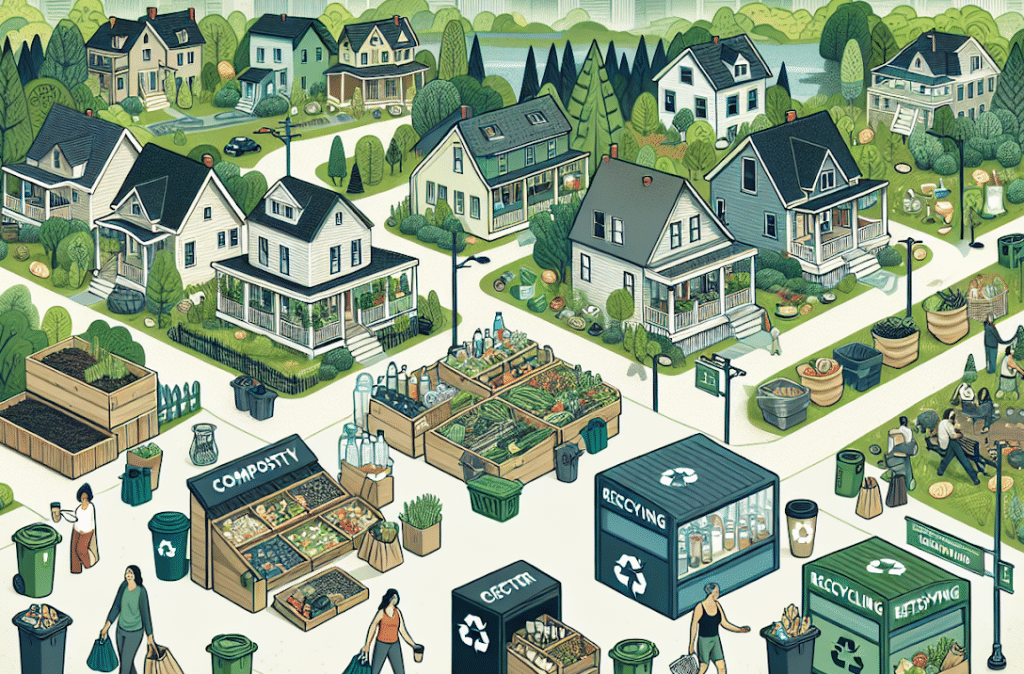
Despite landfill sites and recycling centers being central to waste management, every Richmond resident and business has a part to play in reducing waste and promoting sustainability. Some ways you can contribute include:
- Separating recyclable and compostable materials from your waste
- Participating in community initiatives and events focused on sustainability
- Reducing your overall consumption and waste generation
- Reusing and repurposing items whenever possible
- Supporting local businesses and organizations that prioritize sustainability
Every effort counts toward the city’s sustainability initiatives.
Waste Reduction Strategies
Individuals and businesses have numerous strategies at their disposal to minimize waste. Home composting of organic waste, such as food scraps and yard waste, can significantly reduce the amount of trash sent to landfills. Using reusable items, like water bottles and shopping bags, helps reduce the waste generated at home.
Community Initiatives and Programs
In addition to individual actions, several community initiatives and programs in Richmond contribute to waste reduction and sustainability. For example, the GreenCity Project in Henrico County is a pioneering venture to develop Virginia’s first eco-district, emphasizing sustainable building practices that significantly reduce the ecological footprint.
Summary
In conclusion, managing waste in Richmond is a complex process involving landfill sites, recycling centers, and many regulations and safety measures. But it’s not just about managing waste; it’s also about reducing it and supporting sustainability. Every resident and business in Richmond can play a part in this, and every effort counts.
Frequently Asked Questions
What types of landfills exist in Richmond, Virginia?
In Richmond, Virginia, there are three types of landfills: sanitary, construction/demolition/debris, and industrial landfills, catering to different waste disposal requirements.
How does the waste disposal process work in Richmond?
The waste disposal process in Richmond involves the systematic collection, transportation, and decomposition of waste materials at local landfill sites. Efficient coordination ensures proper management of waste.
What is the role of recycling centers in Richmond?
Recycling centers in Richmond play a crucial role in reducing waste and supporting environmental sustainability by collecting, sorting, and processing recyclable materials. They significantly contribute to the community’s environmental efforts.
What safety measures are in place at landfills?
Landfills have safety measures such as protective liner systems, leachate collection systems, gas-to-energy systems, and specific operational procedures for routine functions and emergencies to ensure environmental protection and public safety.
How can I reduce waste and support sustainability in Richmond?
You can contribute to waste reduction and sustainability by separating recyclable and compostable materials from your waste, using reusable items, donating unwanted items, and participating in community initiatives. These actions can have a positive impact on the environment and community.










